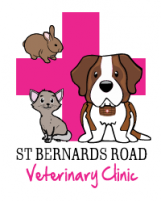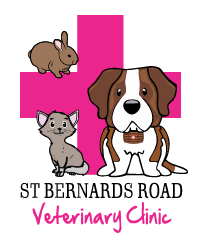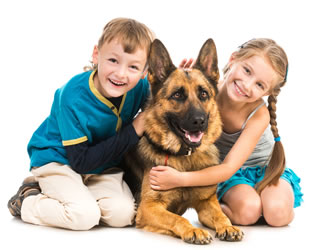Caring for your Pets
General Petcare Articles
Caring for your pet after surgery
Recovery from surgery may be very quick or may take some time, depending on the type of operation.
All of our surgical patients receive pain relief at the time of the operation. You may also be given take-home pain relief in tablet or liquid form.
Why is my pet coughing?
The gas anaesthetic was administered through a tube into the trachea, and some mild irritation of the throat after anaesthesia is normal. If it continues, please contact our staff.
What's with the shaved leg?
The intravenous anaesthetic along with intravenous fluids was administered through an injection into the vein, usually on the front leg.
My pet is sleepy. Is this normal?
A general anaesthetic and sedatives can take a while to wear off. Patients can appear drowsy for a day or two, but after this their behaviour should gradually return to normal.
What should I do if my pet licks or chews the stitches?
Unfortunately, healing wounds can be irritating and itchy. If your pet continues to lick or chew at the wound site, they can slow down healing or cause infection. It is best for your pet to leave hospital with a Buster Collar, a bucket-like device that is attached to the collar and prevents access to the surgery site. There are many sizes available to suit your pet.
Wounds do not get better if they are being licked or chewed – prevention with a Buster collar is the best strategy!
Can I feed my pet tonight?
Ensure your pet has access to water. You can offer them a small meal, but they may refuse to eat, as the anaesthetic can case loss of appetite. However, if your pet does not start eating after 24 hours, please call our clinic.
Some animals vomit after eating on the first night. A small meal is recommended.
After dental procedures, offer soft food for the first few days.
How do I care for my pet's wound?
For the first 10 to 14 days after surgery, the wound needs to be kept clean and dry. Check bandages and sutures daily, and make sure your pet doesn't have a bath or a swim. Check for excessive swelling, discharge, the wound opening, or self-inflicted damage. If any of these concern you, call the clinic.
Some wounds have drains inserted. These wounds will discharge and the drain may need to be cleaned twice a day with warm salty water. Drains are usually removed after 3 days; please make an appointment to have the drain removed.
What should I do if something doesn't seem right?
If you have any concerns, please call St Bernard's Road Veterinary Clinic. Watch out for...
- Lethargy and vomiting after 24 hours
- Excessive redness and irritation around the surgery site
- Swelling or lumpiness around the surgery site
- Bleeding or discharge from the wound
The best care for your pet as they recover from surgery
- Make sure they are warm and comfortable
- Ensure access to food and water
- Give them their medications as directed
- Provide a quiet place for them to rest
Surgery can be tough but if you don't look after your pet the recovery can be tougher


Home | Our Team | Caring for your Pets | Pet Products |
| FAQ | Our Patients | Latest News | Our Services
Site design | That's Graphic


